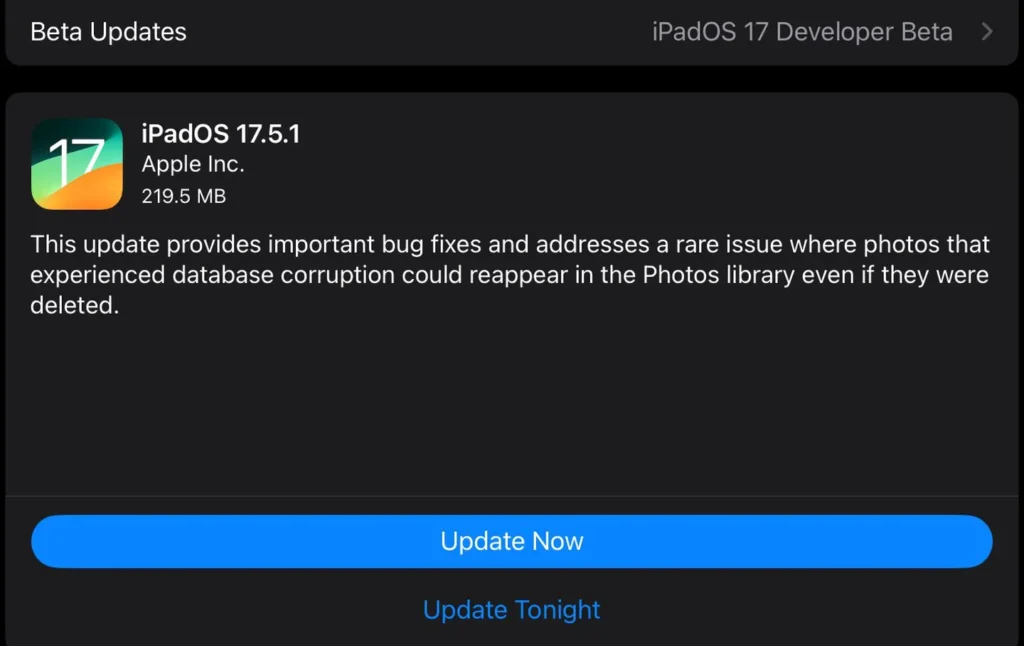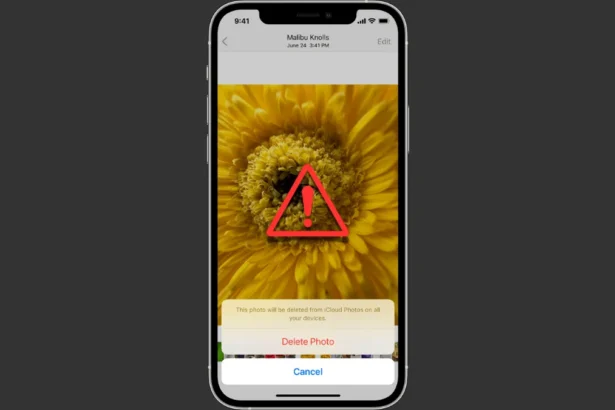When you delete a photo, you expect it to be gone for good.
An update for iOS and iPadOS 17.5.1 was released by Apple earlier yesterday. It’s normal and beneficial to patch software that has bugs. However, it isn’t the problem at hand. Apple’s explanation of the repair is limited to saying that it “addresses a rare issue where photos that experienced database corruption could reappear in the Photos library even if they were deleted.”

Although deleted images on iOS officially remain in the Recently Deleted category for 30 days before being permanently removed, the intention to send a photo into digital oblivion never goes away. One would think that a deleted file would remain erased. That’s why it makes sense that when images that had been erased years ago appeared in the photo library on iPhones last week, people became alarmed.
Clearly, this is a privacy issue. It begs legitimate concerns about how Apple maintains picture data and if iPhone users can genuinely rely on the deletion of their data. The Verge has contacted Apple many times in an attempt to publicly comment on the situation, but has not heard back. If this were done, at least some information would be provided about why this bug occurred, how to repair it, and what is being done to make sure it doesn’t happen again. Apple has not yet responded, though.

What’s concerning is that we have no idea how widespread this flaw is as long as Apple doesn’t say anything. Similar experiences with deleted voicemails have been reported by some iPhone owners. Did users of iCloud photo backups get hit by this bug exclusively? According to a different article, an iPad that was sold to someone else had old pictures on it. The entire repair implemented today demonstrates that this flaw was real, that it caused issues, and that it was related to database corruption. Furthermore, refusing to openly address the issue in response to requests for comment does not inspire confidence that it won’t happen again.

It is possible to argue, “Well actually, no file is ever really deleted until it is overwritten,” while putting your glasses up your nose. Although that is the case, a sane buyer would anticipate that this kind of action shouldn’t even be feasible given Apple’s statement that a deleted file is permanently erased.
Errors and mishaps occur. Researchers that study cybersecurity frequently discover flaws and vulnerabilities. They frequently alert the concerned organizations to the problems before they can be used against them, and they only reveal the vulnerabilities once they have been addressed. It would make sense for Apple to hold off until the flaw was patched in order to stop nefarious individuals from taking advantage of the circumstance. That does not, however, give them permission to remain silent about the matter indefinitely.
As a firm that prides itself on protecting your privacy, Apple should really make a statement on the matter. The topic of software upgrades to keep your data encrypted and prevent even Apple from seeing what’s happening on your phone has been covered in innumerable WWDC keynote speeches. the company’s ideology places a strong emphasis on privacy, so you can trust it with your business. A corporation that is sincere about safeguarding your privacy will exhibit responsible disclosure and transparency. Is it appropriate to ignore the issues? Not really.










 /home/afripjzx/technewsglobal.net/wp-content/themes/foxiz/templates/popup.php on line 167
/home/afripjzx/technewsglobal.net/wp-content/themes/foxiz/templates/popup.php on line 167